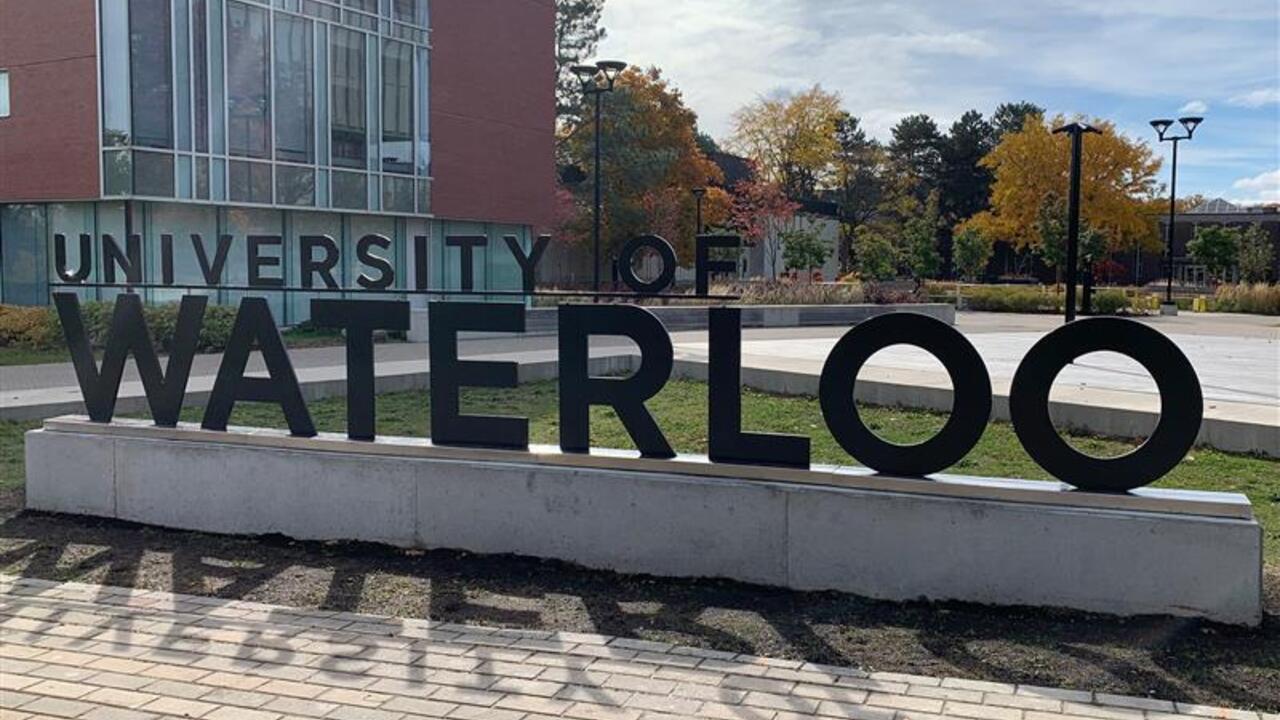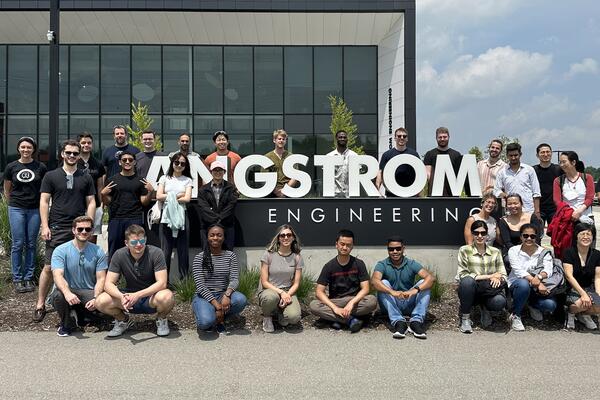
University of Waterloo researchers share insights at Canada Research Chairs event
Four top researchers at the University of Waterloo will give presentations at a two-day conference in Toronto.

Four top researchers at the University of Waterloo will give presentations at a two-day conference in Toronto.
By Media RelationsWATERLOO, Ont. (Monday, Nov. 22, 2010) - Four top researchers at the University of Waterloo will give presentations at a two-day conference in Toronto marking the first decade of the Canada Research Chairs program, a key part of the federal government's strategy to position the country as an international leader in research and development.
The Thinking Ahead for a Strong Future conference, to be held Wednesday and Thursday at the Metro Toronto Convention Centre, celebrates 10 years of success for the Canada Research Chairs program at Canadian universities, including at the University of Waterloo. The conference, the first in a series of regional events, will showcase the contribution of the chairs to research in such areas as health, food, technology, the environment and the economy.
"The Canada Research Chair program and subsequent research at the University of Waterloo has had a tremendous impact on scientists, the economy and quality of life for Canadians," said George Dixon, vice-president of university research at Waterloo. "The CRC program has been instrumental in recognizing and building support for research excellence at universities across Canada."
The Waterloo researchers making presentations on expert panels are:
* Nov. 25, 10:30 a.m. - Art, Technology and Society. The Brave New World of Communications: What’s next?
Karen Collins, University of Waterloo - A software engine that will enhance compositions for new media and sound designers, helping improve the quality of their products and boost Canada’s high-technology sector.
Collins, Canada Research Chair in Interactive Audio, will look at where the entertainment technology is going in the next 10 years, focusing on portability, flexibility, customizability, sustainability, ubiquity and affordability. She will explore music, video games, sensor technology, brain-computer interaction, ubiquitous gaming and the end of the digital divide. Collins will discuss some of the issues that Canada faces and what steps we can take to ensure that we are at the forefront of innovation.
* Nov. 25, 10:30 a.m. Advanced Manufacturing. What will the next Industrial Revolution look like?
Susan Tighe, University of Waterloo - Developing environmentally friendly tools for repairing and renovating Canada’s pavement and civil engineering infrastructure in light of climate change.
Tighe, Canada Research Chair in Sustainable Pavement and Infrastructure Management, will talk about research advances in materials and design. Tighe will focus on the design and construction of sustainable roads and airfield runways, thus making them safer, more cost effective and environmentally friendly.
* Nov. 25, 10:30 a.m. Advanced Manufacturing. What will the next Industrial Revolution look like?
Michael Worswick, University of Waterloo - Making lightweight auto body parts for safer, more fuel efficient cars.
Worswick, Canada Research Chair in Lightweight Materials, heads a team addressing key elements of the automotive life cycle, spanning material production, fabrication into structures and superior service performance in vehicle crash-worthiness and occupant safety. Aims include developing the next generation of low-weight, high-strength automotive structures, employing ultra-high strength steels and lightweight magnesium and aluminum alloys.
* Nov. 25, 10:30 a.m. Aging Living to 100: What are the implications for individuals and society?
Jack Callaghan, University of Waterloo - Improving the clinical treatment of low-back pain sufferers and, preventing low-back injuries from occurring through better workplace standards.
Callaghan, Canada Research Chair in Spine Biomechanics and Injury Prevention, will look at how preventing low back injury can increase the number of quality years of life, as opposed to simply quantity. Eighty percent of the population will suffer from low back pain at some point in their life making low back pain the most prevalent musculoskeletal problem affecting Canadians. Callaghan's research examines injuries in working years and how they impact the quality of life during a longer life span.
About Waterloo
The University of Waterloo, located at the heart of Canada's Technology Triangle, is one of Canada's leading comprehensive universities. Waterloo is home to 30,000 full- and part-time undergraduate and graduate students who are dedicated to making the future better and brighter. Waterloo, known for the largest post-secondary co-operative education program in the world, supports enterprising partnerships in learning, research and discovery. For more information about Waterloo, visit www.uwaterloo.ca.
Contacts:
Janet L. Janes, research communications officer, 519-888-4567 ext.
36834 or jjanes@uwaterloo.ca
John Morris, Waterloo media relations, 519-888-4435 or john.morris@uwaterloo.ca
Waterloo news release no. 91

Read more
Waterloo alum Eric Peters is living out his dream to represent Canada at the 2024 Olympics in Paris

Read more
Velocity pitch competition winners share exciting startup ideas using artificial intelligence and deep tech, showcasing creativity and entrepreneurial prowess

Read more
International researchers gather at Waterloo for a “summer school” in advanced 2D materials
The University of Waterloo acknowledges that much of our work takes place on the traditional territory of the Neutral, Anishinaabeg, and Haudenosaunee peoples. Our main campus is situated on the Haldimand Tract, the land granted to the Six Nations that includes six miles on each side of the Grand River. Our active work toward reconciliation takes place across our campuses through research, learning, teaching, and community building, and is co-ordinated within the Office of Indigenous Relations.